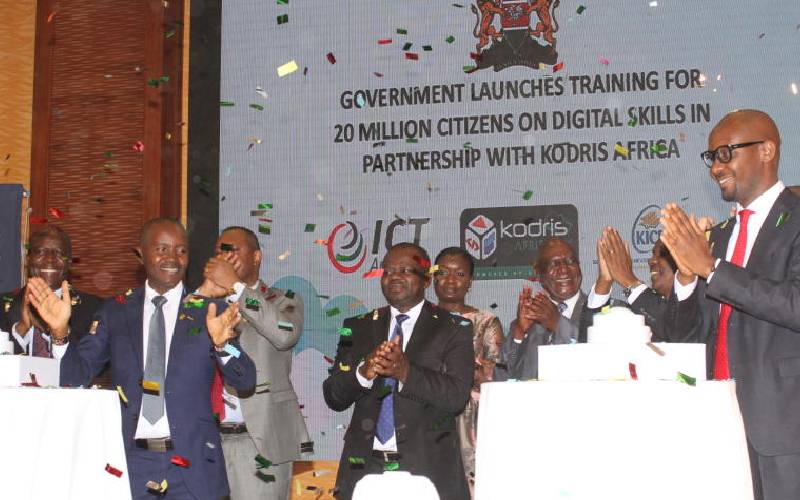×
The Standard e-Paper
Stay Informed, Even Offline

More than twenty million Kenyans will be trained on digital skills so they can be competitive in the global market. The training is part of the Kenya National Digital Masterplan 2020-2030.
The Masterplan is anchored on four pillars of digital infrastructure development, digital skills and digital innovation, digital services and data management, enterprise and digital business.